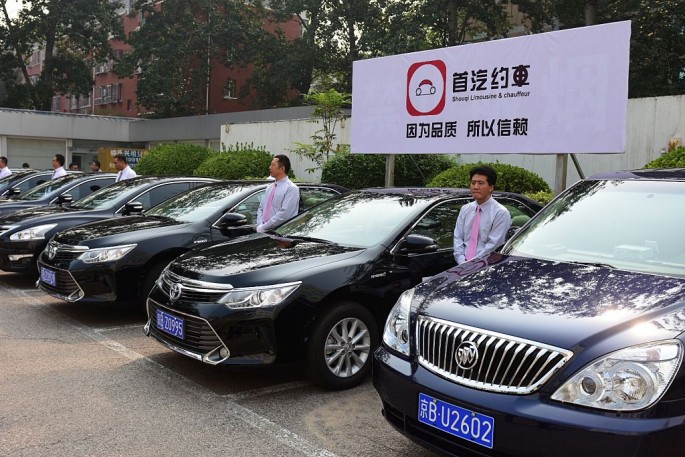A traffic analysis report, released in August 2015, listed Beijing as the worst of 10 cities in China when it comes to traffic. It was the second straight year that the capital city, also known for its smog, topped the list which covered the first six months of the previous year.
Beijing Municipal Commission of Transport Director Zhou Zhengu pinpointed car-hailing services and lower prices of oil for the city’s worsening gridlock, reported Global Times. Of over 100,000 vehicles that are offering car-hailing services, about 60,000 of these are active and add to the worsening traffic in the capital city, he said on Monday at the fourth plenary session of Beijing’s People’s Congress.
These 100,000 for-hire cars fulfill every day about 600,000 to 700,000 online orders done via smartphones, the director said. Before the car-hailing services were introduced, private cars that rented their units without a license were operating underground, while about only 66,000 licensed cabs served Beijing’s millions of residents.
But despite their service of filling in the gaps, Beijing authorities are targeting the car-hailing operators who they said need more supervision and to put in place more safety measures. The operators as well as legal experts disagree.
Yin hao, a car rental agent based in Jiangsu with 800 private cars linked, said the municipal government has no solid evidence to support its claim that car-hailing services worsen Beijing’s traffic. Fu Weigang, research fellow at the Shanghai Institute of Finance and Law, agreed with Yin and added there are several reasons behind the deteriorating vehicle flow speed in Beijing.
But Wang Limei, vice president of the China Road Transport Association, sided with Zhou. He said that the use by passengers of car-hailing services, especially during rush hours, add to the volume of automobiles on the road. However, passenger prefer the services offered by Didi Kuaidi or Uber because they charge about only half of what legitimate taxis charge.
To ease the flow of vehicles in Beijing, the municipal government is considering reviving a scheme that involves license plate numbers, or an odd-even scheme, that would halve the 5.6 million cars in the capital city during winter. The plan would also cut the city’s smog, reported ShanghaiDaily.



























